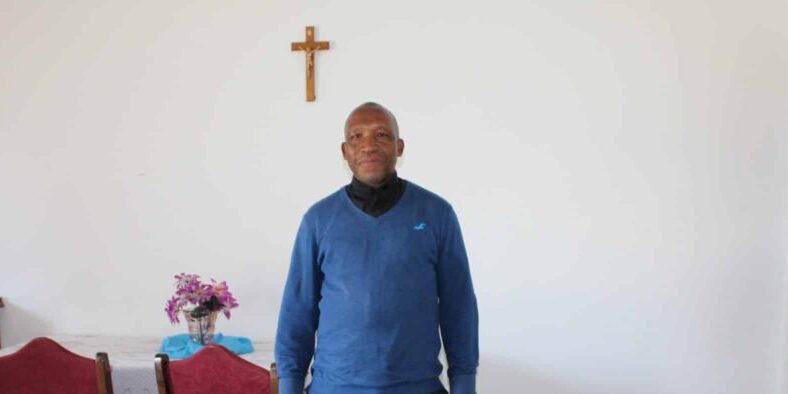Roe’s End in Sight, But Our Work Goes On
Roe v. Wade’s days are numbered. That, remarkably, seems to be the consensus after the U.S. Supreme Court heard oral arguments (transcript here) last Wednesday in Dobbs v. Jackson Women’s Health Organization.
This blockbuster case involves a challenge by Mississippi’s last abortion facility against the state’s 15-week abortion ban. That law, passed in 2018, has been blocked from going into effect by lower courts, based upon arguments that it violates Roe v. Wade, the infamous Supreme Court case that legalized abortion in 1973.
Roe and subsequent cases, including Planned Parenthood v. Casey (1992), state that there is a Constitutional “right” to abortion up to the point of viability – that is, the point when the baby can survive outside the womb. The Mississippi law, banning abortion after 15-weeks, was framed in part as a direct challenge to Roe, in the hopes the Supreme Court could finally overturn Roe, giving far more latitude to states to outlaw the killing of unborn children.
Hope was kindled in May, when enough of the SCOTUS justices agreed to hear the challenge against the Mississippi law. As legal scholars noted at the time, there was no conceivable reason for the Court to hear the case, unless enough of the justices are open to overturning Roe outright, or (at the very least) charting some new compromise that would allow states to ban abortions earlier than Roe and Casey allow.
However, while acknowledging that things looked positive, many experienced pro-life leaders have viewed the case with only cautious optimism, knowing that previous opportunities to overturn Roe at the Supreme Court have ended with bitter disappointment.
A Sea Change at the Court?
Wednesday’s oral hearings have markedly changed the mood. Almost every commentator – both pro-abortion and pro-life – who watched the arguments agreed that the Court’s six conservative justices all more or less strongly signaled an openness to rejecting Roe.
In a feature article for The Atlantic entitled “The End of Roe,” legal scholar Mary Ziegler wrote, “Anyone listening to today’s oral argument on abortion could not miss that something historic was happening. … Today’s oral argument signaled that the Court is poised to reverse Roe outright when it decides Dobbs, probably sometime in June or early July.”
The editors of the National Review gave a nod to the delicacy of predicting outcomes at the Court, but concurred that something massively positive seemed to unfold in the courtroom. “Veterans of Supreme Court cases past know that it is risky to read the tea leaves from questions at argument,” they wrote, “but it is hard to see how the argument could have gone much better for the pro-life cause.”
There were many instances in which the more conservative justices appeared to play their hand in a way that suggests that Roe is on the brink. Of course, we shouldn’t be surprised that as strongly a pro-life justice as Justice Alito would suggest (as he did) that Roe’s viability line “really doesn’t make any sense,” and that it seems “arbitrary” (which it is).
More encouraging, however, is that Justices Gorsuch, Kavanaugh, and Barrett – Trump’s three recent SCOTUS appointees, whose positions are less known – also seemed skeptical that Roe and Casey withstand close scrutiny.
For instance, at one point Justice Kavanaugh expressed skepticism that – contra Roe – the Constitution has anything at all to say about abortion. Echoing pro-life arguments, Justice Kavanaugh noted that “the core problem here is that the Court has been forced…to pick sides on the most contentious social debate in American life and to do so in a situation where…the Constitution is neutral on the question of abortion.” As such, he concluded, pro-life legal analysts “would say, therefore, it should be left to the people, to the states, or to Congress.”
Importantly, many of the Justices appeared to question the idea that stare decisis – i.e., the legal doctrine that says that judges should, in general, follow court precedent – provides an ironclad reason to resist rejecting Roe.
Much of the debate about the fate of Roe has centered on the question of stare decisis, with pro-abortion legal scholars and justices arguing that overturning Roe would hurt the “reputation” or “legitimacy” of the Court. However, as Mississippi State Solicitor General Scott Stewart astutely argued in the courtroom on Wednesday, the legitimacy of the Court is protected not by blindly upholding precedent, but in having the courage “to stand strong and stand firm” and to follow “constitutional principle” in overruling erroneous precedent when the errors become manifest.
In other words, the reputation of the Court is not protected by doubling down on egregious errors, but in choosing to stand for truth, at all costs.
Amen to that.
Our Work is Just Beginning
It is crucial to note, however, that even if Roe is overturned or modified, it will not be the end of the pro-life movement. Not by a long shot.
It is true that overturning Roe is something that pro-lifers have worked towards, and prayed for, for decades. When we have gathered at the March for Life, we have chanted and held signs urging the Court to “overturn Roe.” But getting rid of Roe has never been the end goal. Ending abortion is.
As Tom McClusky, president of March for Life Action, noted to the New York Times, there will be some pro-life activists who will “claim victory and walk away” once Roe is overturned. However, he added, “We want to build a culture where abortion is unthinkable. So even if by some miracle next spring Roe is overturned, there is still going to be a ton of work to do.”
Overturning Roe does not immediately make abortion illegal. It only returns the issue to the individual states. Fortunately, brilliant pro-life legal activists and legislators have presciently focused on state-level legislation for decades now, working to pass strong pro-life legislation, even when that legislation can’t go into effect until Roe is overturned.
According to the pro-abortion Guttmacher Institute, if Roe is overturned, twenty-six states will mostly or completely ban abortion. In a detailed breakdown, pro-abortion Democratic activist Jessica Post notes that nine states have never repealed pre-Roe abortion bans. With Roe overturned, they would immediately go back into effect. Meanwhile, twelve states (including four with pre-Roe bans on the books) have passed so-called “trigger laws,” that will automatically ban abortion once Roe is overturned.
On the other hand, however, fourteen states and D.C. have passed laws strongly defending abortion. In those states, the killing of unborn children would go on as before. Indeed, likely at a higher level than before, with some women traveling to those states to have their children killed.
In her analysis, however, Jessica Post unintentionally gave high praise to the grit and genius of the pro-life strategy, noting that “Republicans worked for decades to win state legislatures so they could pass extreme abortion bans that rile up their far-right base with the hope of overturning Roe. We can no longer rely on SCOTUS to protect this fundamental right. That time is up.” She added, “We need Dems to throw themselves into state legislative elections just like Republicans have been doing.”
What a testimony to pro-life prescience! However, Post is right: once (or if) Roe is overturned, all attention will turn to the state level. At that point, there will be a greater need than ever for pro-life activists to get involved at the local and state level. There can be no passing the buck: at that point, the issue lands right at our doorsteps.
And our efforts can’t only be aimed at passing (and protecting) pro-life laws! With abortion becoming illegal in many states, there will be a rise in the number of women needing practical help to bring their children safely into the world. We will need a movement like none other to provide concrete resources to families, ensuring that no couple need face the uncertainties and hardship of a difficult pregnancy alone. True, pro-lifers have already done yeoman’s labor in building a social safety net by founding thousands of pro-life pregnancy centers. With Roe gone, however, that net will have to expand even further.
Pray for Courage for Our Justices
There are many variations of the proverb “don’t count your chickens until they hatch.” Indications at the Court last Wednesday were extraordinarily promising. However, as the editors of National Review wrote, “A majority of the Court appears to understand that Roe is bad law. What remains to be seen is whether they have the courage to act on that.”
That must be our prayer today: Pray ardently, and fast, for our Supreme Court justices. They have heard the arguments. Enough of them appear to be sympathetic to the truth. But there is a difference between knowing the truth and acting on it. Most of us cannot understand the level of pressure – psychological, social, and spiritual – that is being placed upon them. If they overturn Roe, all the ire of the powerful abortion lobby, and the dark spirits that revel in the slaughter of abortion, will be aimed in their direction.
Let us cover them with prayer. May we all yet live to see not only the end of Roe, but also the end of the violence and scourge of abortion, in the United States and around the world.
As president of Human Life International, Fr. Boquet is a leading expert on the international pro-life and family movement, having journeyed to nearly 90 countries on pro-life missions over the last decade. Father Boquet works with pro-life and family leaders in 116 counties that partner with HLI to proclaim and advance the Gospel of Life. Read his full bio here.









stare decisis was not followed when SCOTUS overturned the “separate but equal” and other unfair civil rights laws that passed last century. So justice and fairness won out for non-white folks and the unborn can win out on this decision too.